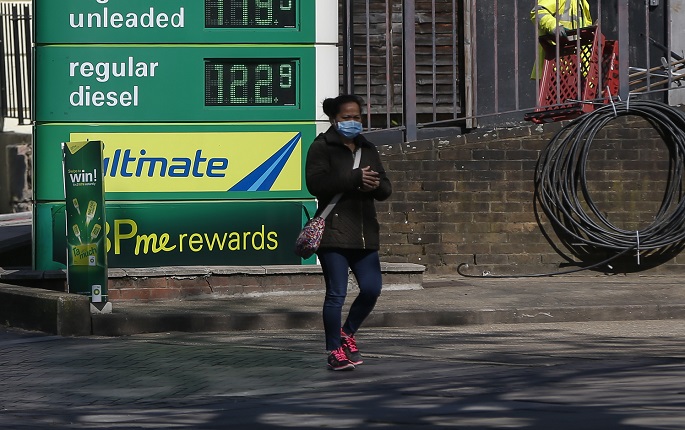UK ethnic minorities likely at greater risk of poorer coronavirus outcomes
Published : 03 May 2020, 20:26
Patients from BAME (Black, Asian and minority ethnic) groups may be at increased risk of poorer health outcomes from COVID-19, according to an analysis of patients hospitalised in London carried out by researchers at Imperial College London.
Evaluating whether outcomes vary by ethnicity, the report characterised the main risk factors associated with deaths for patients admitted for COVID-19 to three hospitals in Imperial College Healthcare NHS Trust -- St Mary's, Charing Cross and Hammersmith hospitals.
Describing 520 patients hospitalised between Feb. 25 and April 5, the report found that in terms of ethnicity, 40 percent of patients were from black and Asian minority groups, 38 percent were white and ethnicity was unknown for 22 percent, according to the report.
"We found that patients from BAME (Black, Asian and minority ethnic) groups were over-represented in admissions for COVID-19 compared to a normal year with other illnesses," said Shevanthi Nayagam, a clinical research fellow within the School of Public Health.
Patients of black ethnic minority were younger and had fewer pre-existing health conditions compared with white patients, said the report, noting that patients with black ethnicity may be at increased risk of mortality from the disease.
Meanwhile, citing a stark analysis by the Institute of Fiscal Studies, the Guardian newspaper said the death rate among British black Africans and British Pakistanis from COVID-19 in English hospitals is more than 2.5 times that of the white population.
Examining the possible reasons, the Institute of Fiscal Studies said that a third of all working-age Black Africans are employed in key worker roles, 50 percent more than the share of the White British population.
Additionally, it said that Pakistani, Indian and Black African men are respectively 90 percent, 150 percent and 310 percent more likely to work in healthcare than white British men.
Concerns have been growing about the disproportionate impact of novel coronavirus on BAME people since figures published earlier last month showed that 35 percent of almost 2,000 COVID-19 patients in intensive care units in England, Wales and Northern Ireland were non-white, compared with 14 percent of the population of England and Wales, according to the 2011 census.
Fears were fuelled by the fact that the first 10 doctors with the virus reported to have died were also BAME, said the newspaper.
Further statistics showing up disparities have since come to light, as the Guardian revealed last week that minority groups were over-represented by as much as 27 percent in the overall COVID-19 death toll.
Additionally, 63 percent of the first 106 health and social care staff known to have died from the disease were black or Asian, said the newspaper, citing the Health Service Journal.
While cultural practices and genetics have been mooted as possible explanations for the disparities, higher levels of social deprivation have also been mooted as a cause and the Institute of Fiscal Studies warned that some ethnic groups look more likely than others to suffer economically from the lockdown.
"Bangladeshi men are four times as likely as white British men to have jobs in shut-down industries, due in large part to their concentration in the restaurant sector, and Pakistani men are nearly three times as likely, partly due to their concentration in taxi driving. Black African and black Caribbean men are both 50 percent more likely than white British men to be in shut-down sectors," said the report.
As of Friday afternoon, of those tested positive for coronavirus, 28,131 have died in Britain. The figures include deaths in hospitals, care homes and the wider community.


